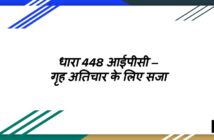Divorce is the legal dissolution of marriage. The process of divorce that starts from coping with emotional ups and downs to contesting the long-awaited divorce decree for several months is a brutal affair to get through. The wife is entitled to claim maintenance for her sustenance and court fees during the divorce proceeding and after the divorce. This article will discuss maintenance and alimony, when the wife is not entitled to claim maintenance in India, and the difference between maintenance and alimony.
What is Maintenance?
Maintenance is a kind of financial support given to the wife by her husband when she cannot support or maintain herself and provide for the basic amenities like food, clothing, and shelter for the wife and the children. In India, the wife is entitled to claim financial support from her husband after the divorce and before and during the divorce proceedings.
What is Alimony?
Alimony is derived from the Latin word called ‘alimonia‘, meaning sustenance. It means financial support given to the spouse (husband or wife) during a separation or after divorce.
The court decides the maintenance amount after looking into the husband’s income, dependents, wife’s income, and applicable laws. Nevertheless, there are instances where the wife’s maintenance claim gets disqualified.
When is the wife not entitled to claim maintenance in India?
Let us discuss the instances under different laws where the wife is not entitled to claim maintenance from the husband.
Maintenance under Hindu Laws
A Hindu wife is not entitled to claim maintenance under the following circumstances:
a) Wife’s conversion to another religion during the marriage or after getting a divorce and cease to be a Hindu.
b) Wife commits adultery, is unchaste, or has engaged in a physical relationship with another man.
c) Wife remarries after divorce.
A wife will not be disqualified from getting maintenance from her husband if she is employed and her salary is not enough to live a sustainable life as she used to have during a marriage.
Maintenance under the Domestic Violence Act.
As per the Domestic Violence Act, a wife can claim maintenance if she has been subjected to domestic violence by her husband and in-laws, provided, she can prove the acts or conducts that are defined as ‘domestic violence’ under the Domestic Violence Act. However, suppose the wife is not able to confirm any domestic violence. In that case, she will not be entitled to claim maintenance from her husband.
Maintenance under Muslim Laws
A Muslim wife is not entitled to claim maintenance under the following circumstances:
a) The wife has left or abandoned her husband and stopped performing marital obligations without providing any sufficient reason.
b) Wife has not attained puberty.
c) Wife disobeys her husband’s reasonable commands.
d) Wife has eloped with some other person.
Maintenance under Section 125 of CrPC
Section 125 of CrPC provides for circumstances that disqualify the wife from claiming maintenance from her husband:
a) Wife has committed adultery;
b) Wife lives separately without sufficient reason;
c) Both the spouse has decided to live separately by mutual consent
d) Court has refused to award maintenance in a decree or
e) The wife remarries after divorce.
Difference between Alimony and Maintenance
Alimony and maintenance are used interchangeably; however, they are two distinct legal terms used in different types of divorce to provide financial support to the spouse in the event of divorce. Let us understand the differences:
- Meaning: Alimony is a one-time payment that can be made to either of the spouses who cannot maintain themselves. Once the alimony amount is provided to the spouse, then that spouse is not entitled to receive any other support during their lifetime. Maintenance is an allowance paid by the husband monthly, annually, or at such intervals as may be fixed by the court.
- Who can claim: In alimony, either husband or wife can seek alimony by filing a petition to claim alimony before the court. At the same time, only the wife can seek maintenance by filing a petition to claim before the court.
- When is it claimed: An alimony petition is filed in case of divorce by mutual consent, where parties amicably decide the alimony amount. Whereas a maintenance petition is filed in case of a contested divorce, where partners have a dispute in determining the maintenance amount.
- Mode of payment: Alimony can be paid in cash or any other payment mode as may be decided by the partner, it can also be paid in the form of property. However, maintenance cannot be paid in the form of property, it can be paid in cash or any other payment mode.
- Type: Alimony is only a one-time payment paid in a lump sum after the divorce decree. In contrast, maintenance can be either interim or permanent. Interim maintenance can be claimed by applying interim maintenance if the wife cannot support herself and pay the legal fees. Permanent maintenance is paid when the court pronounces the final decree of divorce, and the husband is obligated to pay the maintenance for the wife’s lifetime or until she gets remarried.
Conclusion
Divorce is of two types mutual divorce or contested divorce. Suppose the parties are not able to financially support themselves. In that case, they can file a petition to claim maintenance or alimony. The husband or wife can claim alimony in a mutual consent divorce. The wife can claim maintenance in a contested divorce. There are specific grounds where a wife can be disqualified from claiming maintenance from her husband.

